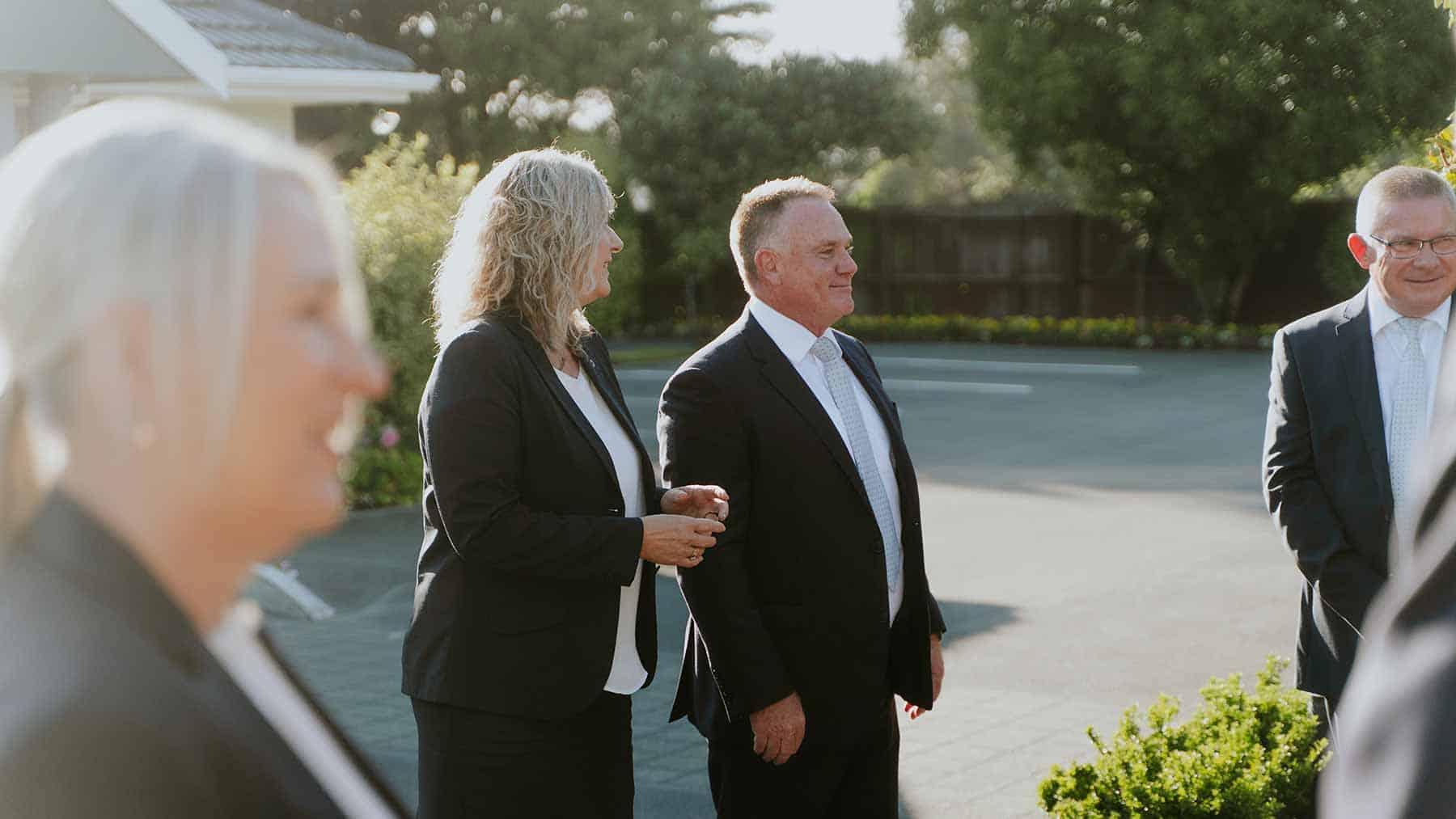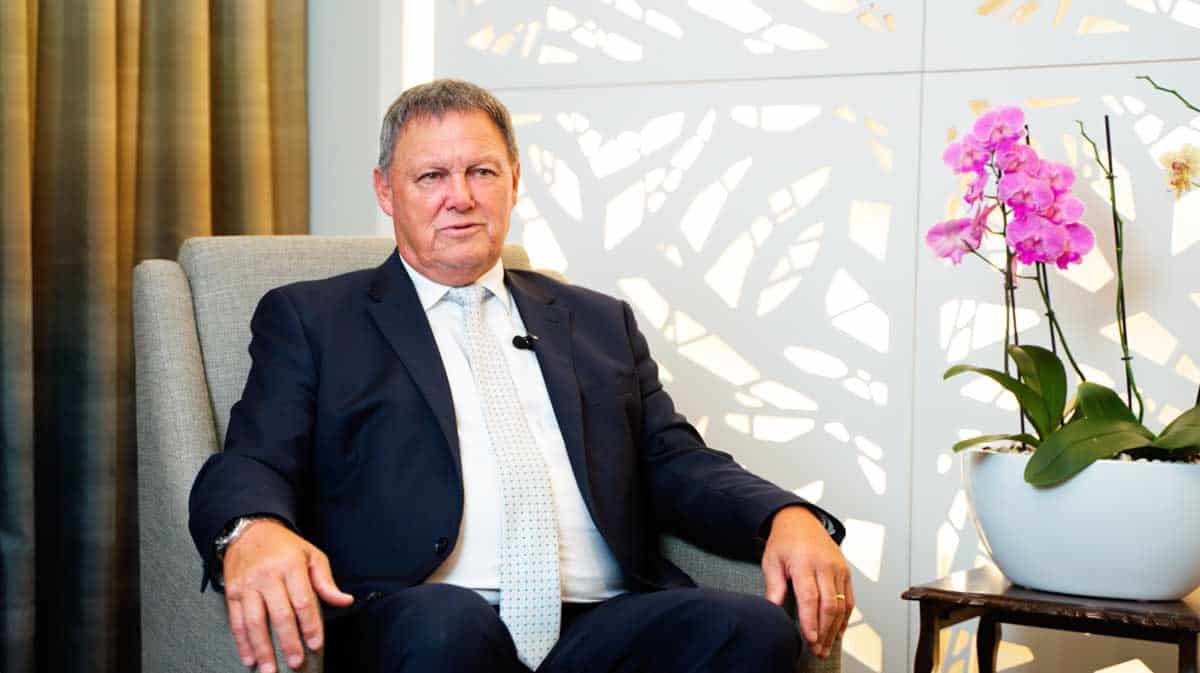


Supportive, comprehensive Funeral Services in Christchurch
Providing you with funeral care in Upper Riccarton. Honouring your loved one’s wishes and guiding your family through the funeral process with compassion and expertise.
A comforting presence in your time of need
There’s no greater pain than losing a loved one. But when someone dear to you passes away, you and your family don’t have to carry the weight of the funeral arrangements alone.
Our compassionate, experienced team of funeral directors in Upper Riccarton, Christchurch will gently guide you through the entire funeral process to make this difficult time a little bit easier.
We’ll take care of the arrangements with compassion and respect so you can focus on your family and friends, sharing fond memories of your loved one, and beginning to process your loss.
Talk to our caring funeral directors.
Comprehensive funeral services
We’re with you through every step of the funeral process, from taking care of paperwork to selecting a casket and organising a funeral ceremony that truly honours your loved ones wishes.
If a simpler, more private farewell suits your needs best, we can make arrangements to match your vision and budget.
Rest assured, nothing is too much trouble for our team of compassionate funeral directors in Riccarton. We’re here to help in any way we possibly can.

Kind words from families we’ve supported
A little bit about us
Originally based in the heart of Christchurch, Academy Funeral Services moved to our current location on Main South Road in 1985. The building, which was once a church, has been transformed into a welcoming and contemporary space for families in need of funeral care. And with recent updates, we've added a fresh, modern touch to our facilities.
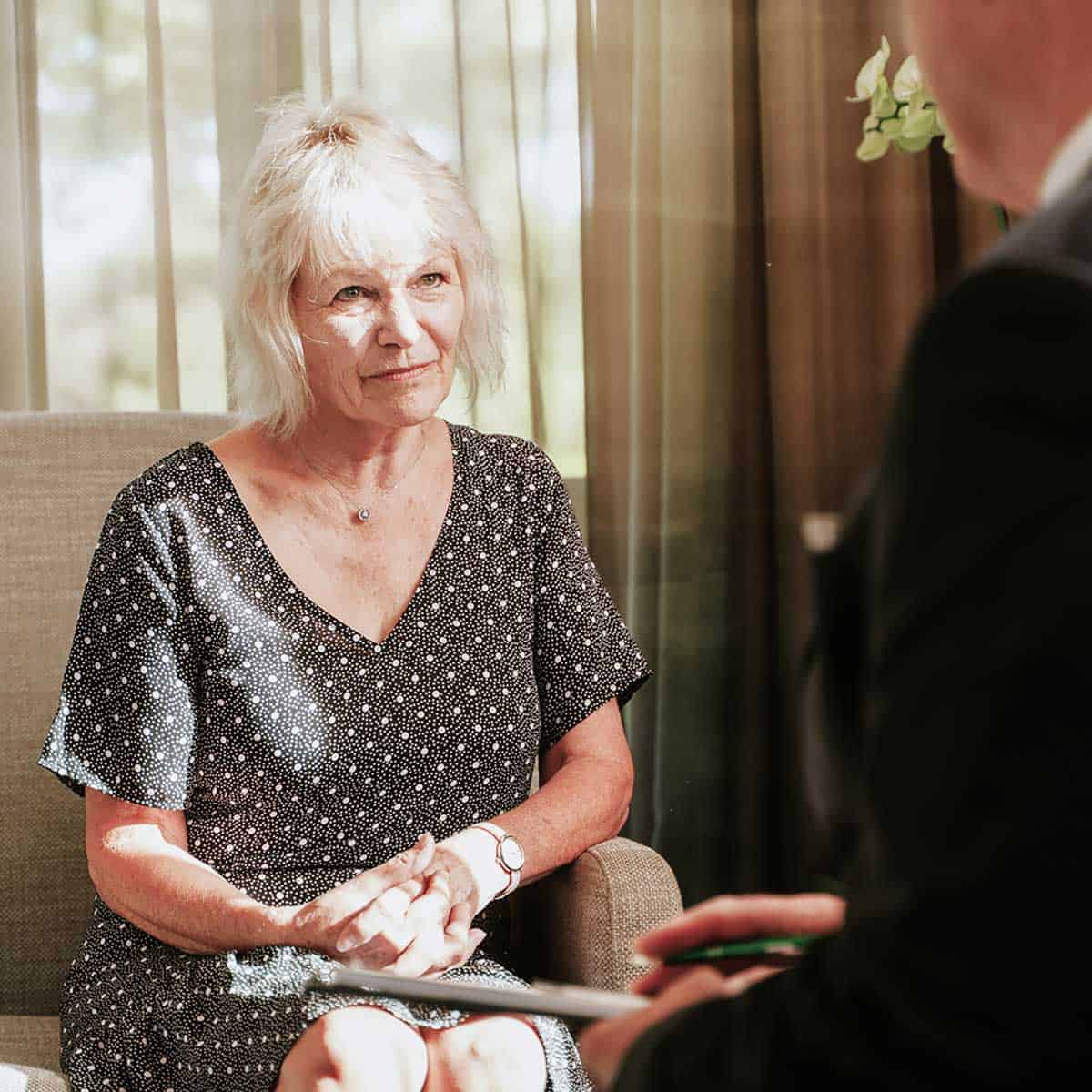
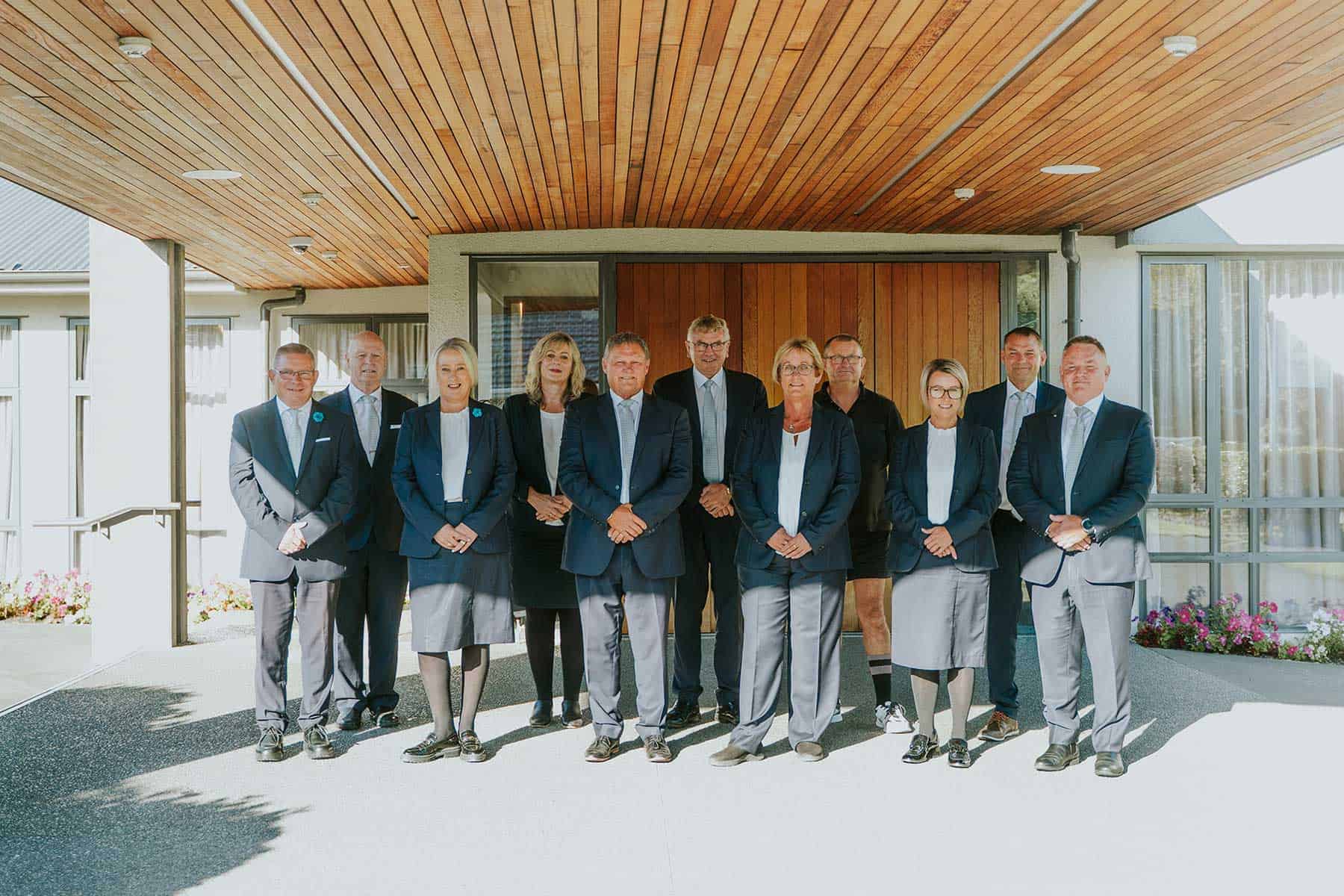
Our team is small but dedicated, each chosen for their empathy, expertise, and experience. We understand just how important it is to offer kind, thoughtful care when it's needed most.
Originally based in the heart of Christchurch, Academy Funeral Services moved to our current location on Main South Road in 1985. The building, which was once a church, has been transformed into a welcoming and contemporary space for families in need of funeral care. And with recent updates, we've added a fresh, modern touch to our facilities.
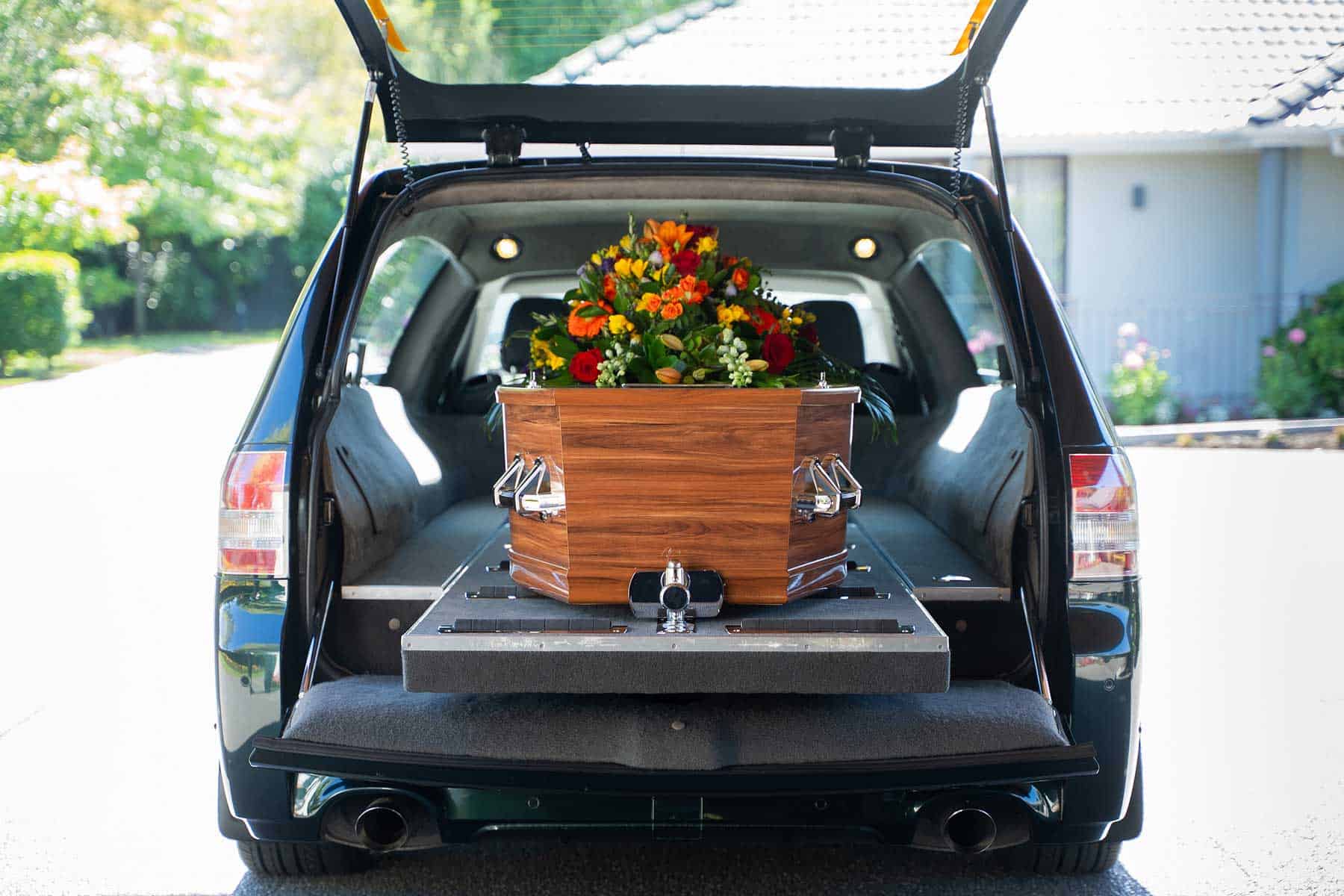
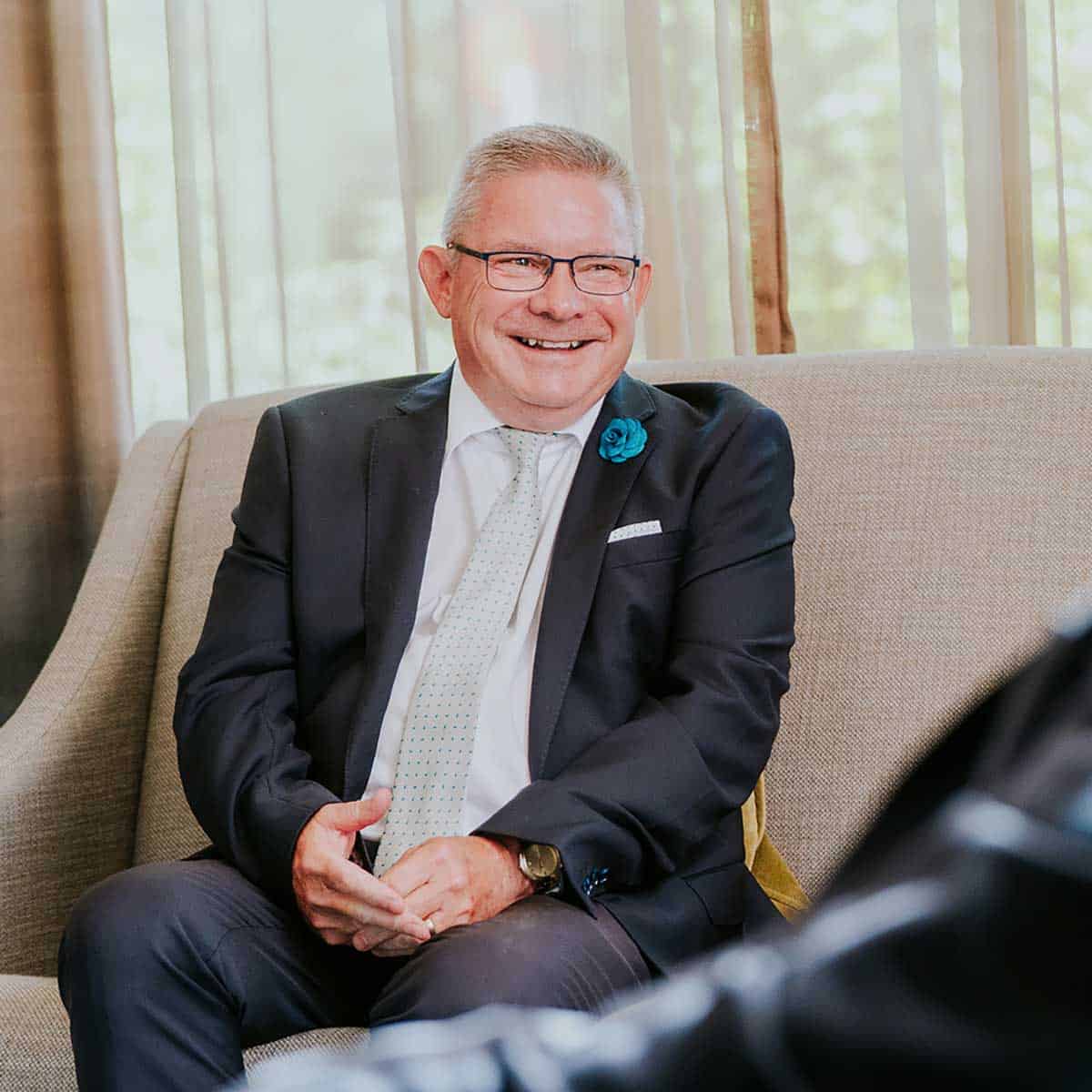
Canterbury Trusted Accredited
Academy Funeral Services is honoured to be the first funeral company recognised as Canterbury Trusted.
This prestigious award, created by Business Canterbury, shows our commitment to the highest standards of care and service in our region.
Get your free funeral information pack
Access helpful tips and advice to help you makeyour funeral arrangements with our info pack.
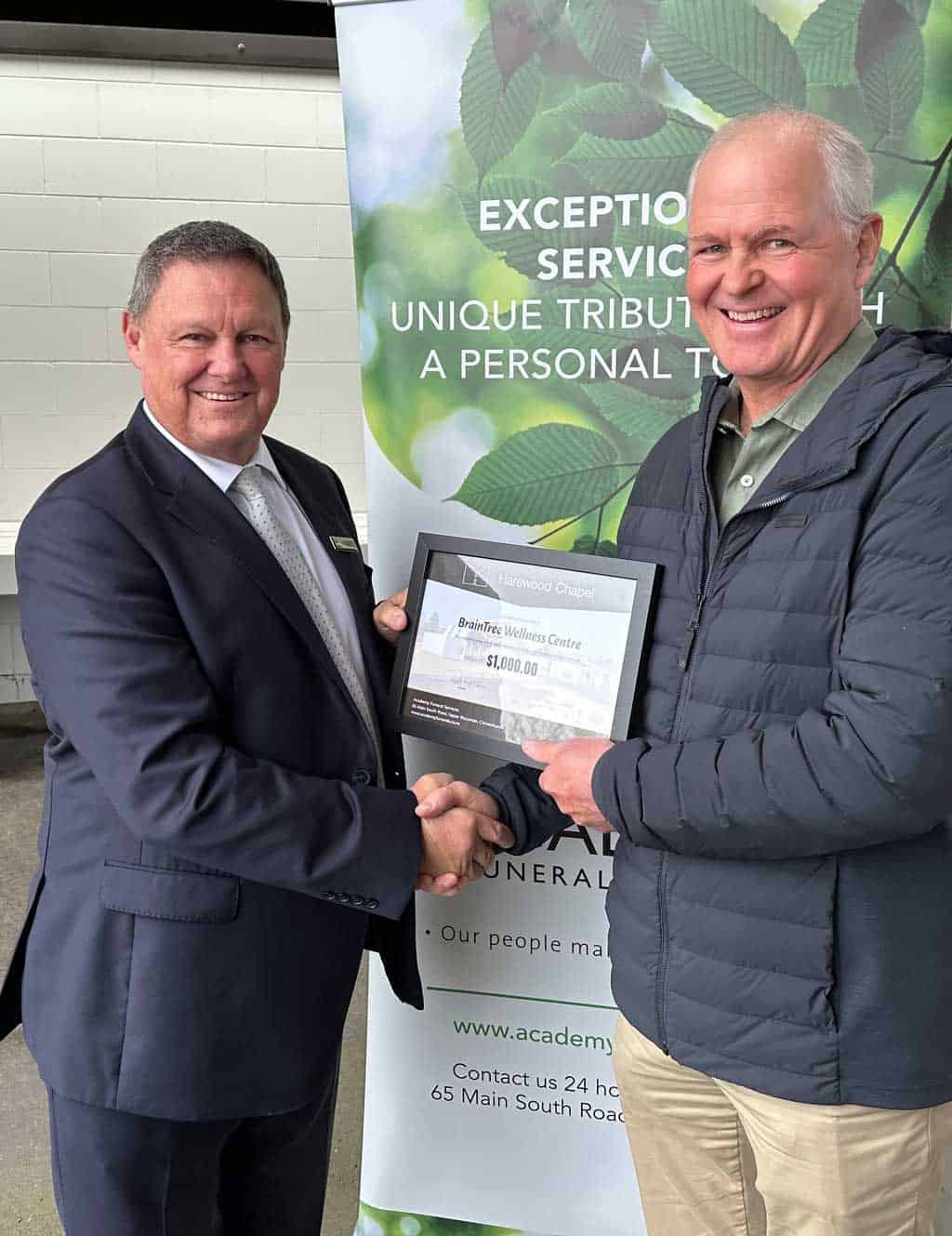
Our community initiatives
We’re proud to be part of the Christchurch community and passionate about opening up conversations around death and grief. By supporting local initiatives and groups, we hope to make funeral care feel more approachable.
